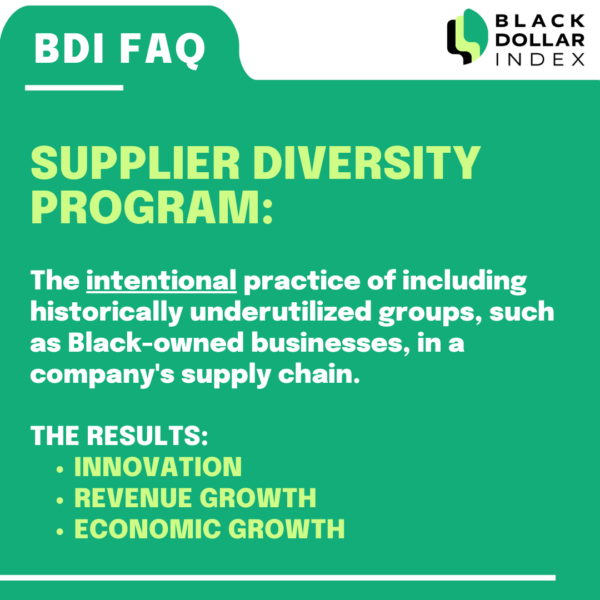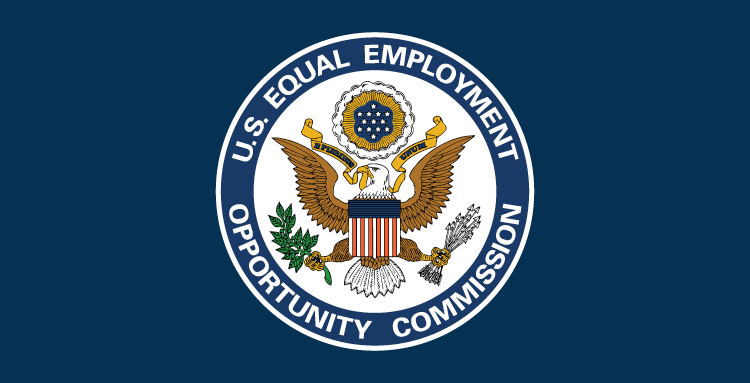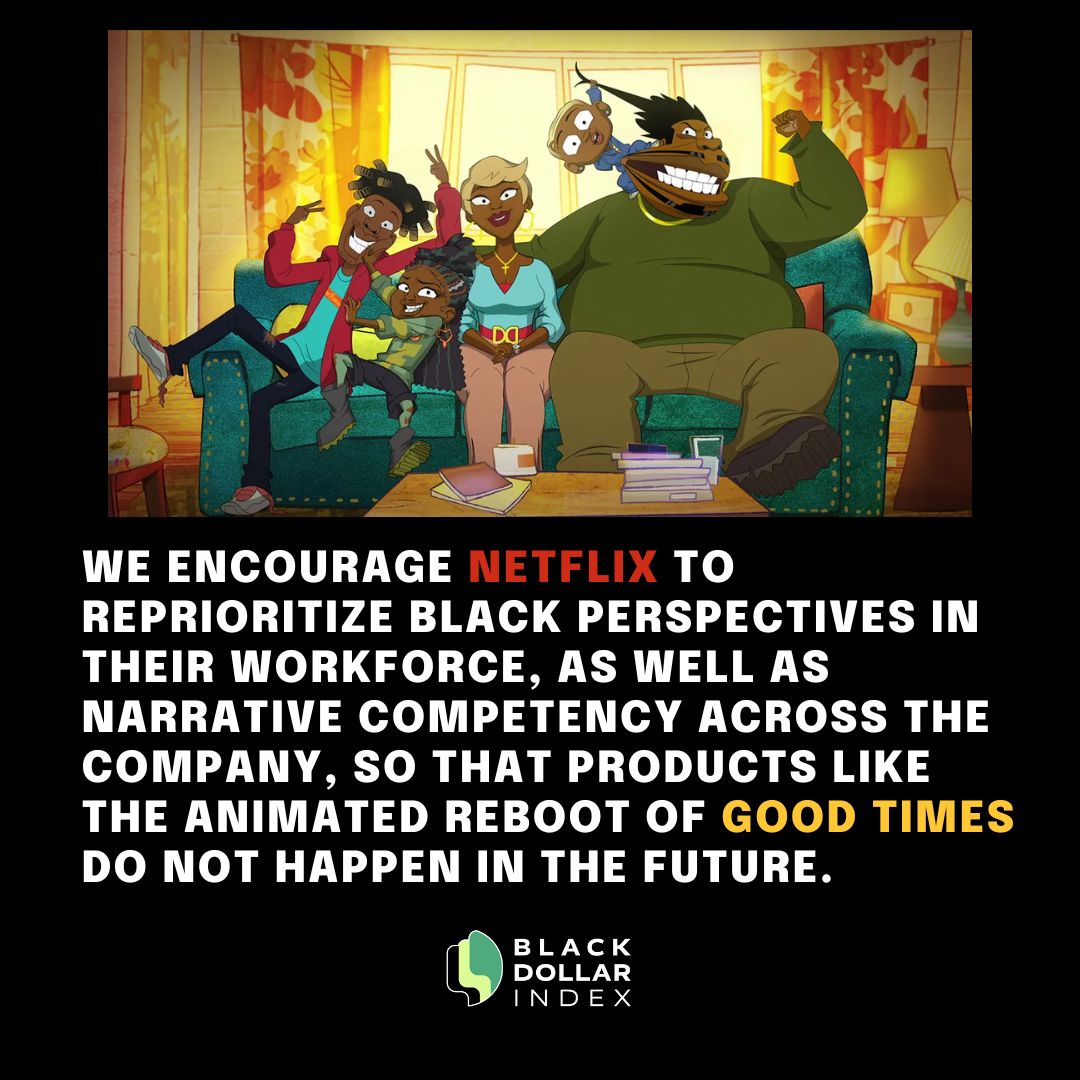Corporate DEI Commitments: We the People asked for equity, they gave us more advertising.

Photo Credit: abolova .
You know how your parents always made you eat dinner before dessert? That’s what I’m about to breakdown real quick in terms of corporate DEI commitments.
As we continue to shine a light on corporate commitments to Black America, I want to make sure we don’t get blinded by some of the flashy efforts (dessert) that continue to overshadow the deeper work (dinner) that still needs to be done.
Media executive Byron Allen and others are putting pressure on corporations to increase their spends with Black-owned media. I commend Byron Allen for leading this charge (Get your money!). Black media is extremely important, but let’s be very clear, this is only one small part of the Supplier Diversity story and WAY more must be done.

Let’s take a look at a few of the corporate commitments that have come from this pressure:
GM (BDI Score: Not Yet Rated):
In April 2021, the automaker pledged to double its spending commitment with Black-owned media to 2 percent in 2021 and 4 percent in 2022, with a goal of reaching 8 percent by 2025.
McDonald’s (BDI Score: 56/100 – Not Yet Approved):
In May 2021, one year after George Floyd was murdered, McDonald’s announced that they were going to “accelerate the allocation of advertising dollars to diverse-owned media companies, production houses and content creators.”
Coca-Cola (BDI Score: 41/100 – Not Yet Approved):
In June 2021, Coca-Cola North America announced plans to nearly double its spending with minority-owned media companies over the next three years. Black, Hispanic, and Asian-American and Pacific Islander (AAPI)-owned media companies and partners will account for 8% of the company’s total annual media budget in North America by 2024.
What does this mean?
In simple terms, these companies are committing to spend MORE money marketing their products and services to Black consumers, but NOW they are making an intentional effort to do so with more Black-owned media companies.
What’s the problem here?
We still don’t have real diversity, equity, and inclusion in other areas of the business. We’re asking for access. We’re asking for internal representation across all levels of these companies. We’re asking to be hired, mentored, and promoted. We’re asking to be included in decision-making that affects the well-being of our communities. We’re asking for supply chain contracts that promote Black entrepreneurship and help us to scale our businesses that help to grow the industry cutting the checks.
As it currently appears, corporations are working harder to make sales off of Black consumers than they are trying to fix the deeper issue.
Ok, now do the other lines of business next 🙃
— Black Dollar Index (@BlackDollarIndx) June 23, 2021
Media/marketing seems to be the go to, but all this means is they will work harder to REACH the Black audience. Agencies and media partners are one small (consumer-facing) piece of the full Supplier Diversity story. #racialequity https://t.co/wtQm6uvsJc
What corporations need to do, in my humble opinion:
- Focus on making their companies AND industries more equitable for Black, Latinx, AAPI, LGBTQ+, and other underrepresented communities.
- Prioritize other lines of business when it comes to Supplier Diversity and be transparent about it. Assess their supply chains from products on shelves to outside legal counsel to manufacturers to office supplies and make an intentional and transparent effort to increase spending and suppliers.
- Stop masking their lack of internal effort by pandering to consumers through Black-centric marketing campaigns. EVERY dedicated African-American marketing campaign should be connected to a pro-social commitment to better our communities.
What can we do about it?
- Apply pressure:
- Use your social platforms to let brands know you see them. “.@Brand I see that you are investing more dollars towards marketing to Black consumers. What other areas of your supply chain are you increasing spends with Black Suppliers?”
- Encourage your favorite retailers to take the 15% Pledge — 15% Pledge is an organization pushing major retailers to commit a minimum of 15% of their shelf to Black-owned businesses. https://www.15percentpledge.org/
- If you or someone you know is a Black entrepreneur looking for opportunities to scale your business, visit the National Minority Supplier Development Council (NMSDC) for more resources and information on how to become a corporate supplier. https://nmsdc.org/
- Stop evangelizing for brands who have not yet done the work and shown proven results. 🗣Cultural currency is still currency.
Sources:
- https://corporate.mcdonalds.com/corpmcd/en-us/our-stories/article/DiversityEquityAndInclusion.diverse-owned-media.html
- https://media.gm.com/media/us/en/gm/news.detail.html/content/Pages/news/us/en/2021/apr/0423-gm.html
- https://investors.coca-colacompany.com/news-events/press-releases/detail/1028/coca-cola-north-america-steps-up-spending-with
- https://blackdollarindex.com/mcdonalds/
- https://blackdollarindex.com/coca-cola/
- https://deadline.com/2021/05/byron-allen-sues-mcdonalds-10-billion-in-damages-for-discriminating-against-black-owned-media-1234761384/
- https://www.blackenterprise.com/byron-allen-takes-out-full-page-ad-calling-gm-ceo-mary-barra-racist/
- https://adage.com/article/media/byron-allen-threatens-legal-action-if-madison-avenue-does-not-allocate-more-dollars-black-owned/2321926




